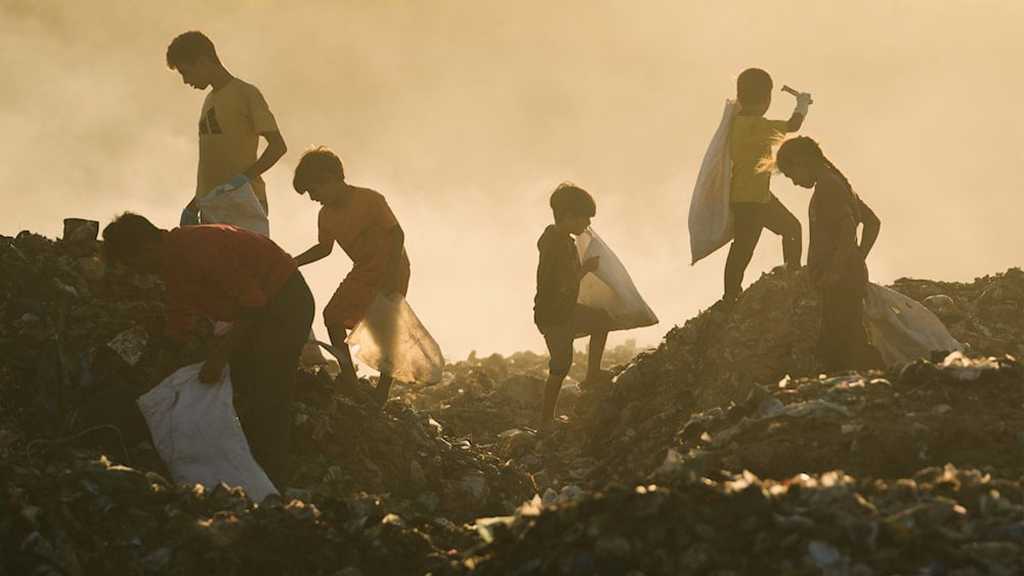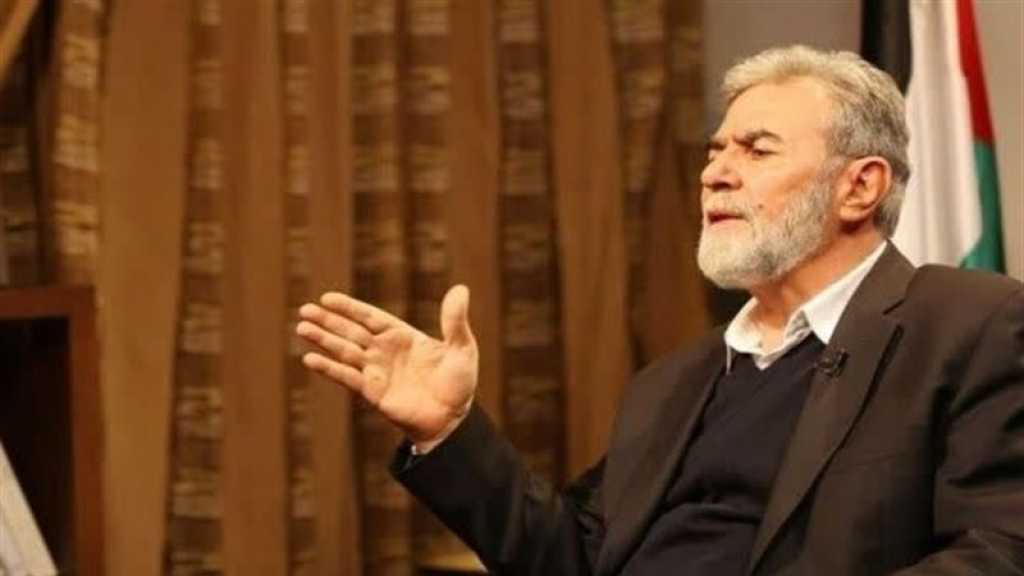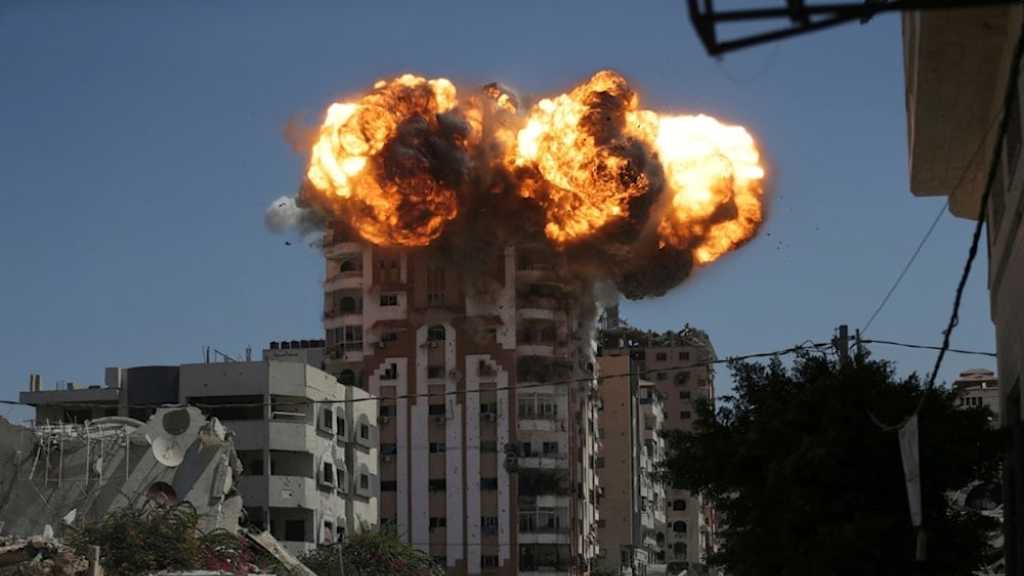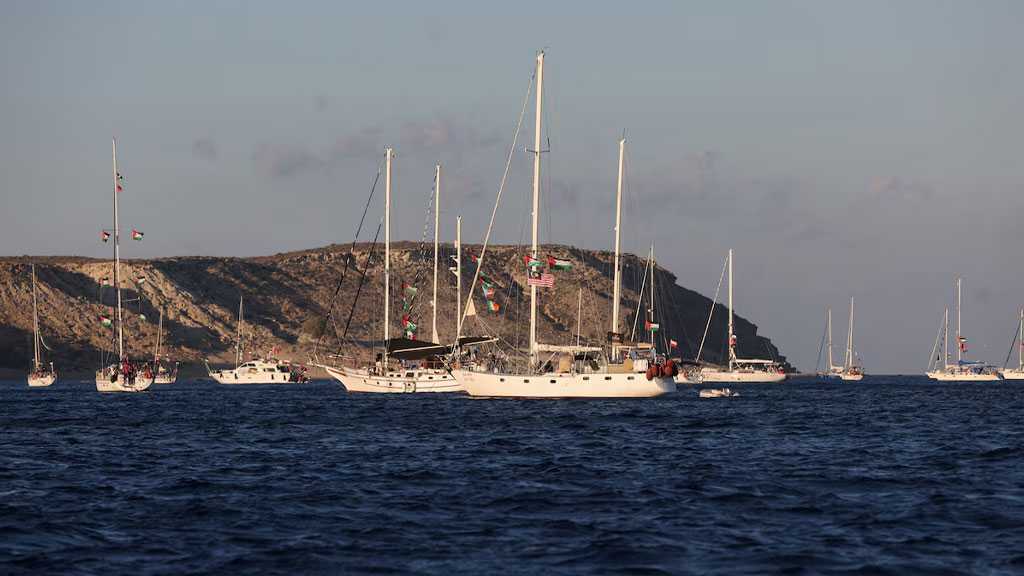What "Israel" can do in One Week

Report on ‘Israel's' Human Rights Violations from 11 - 17 Sep. 2008
Palestinian civilians waiting at Qalandya checkpoint hoping to be allowed to cross towards
'Jerusalem' (occupied al-Quds) to pray in the al-Aqsa Mosque
'Israeli' Occupation Forces (IOF) Continue Systematic Attacks against Palestinian Civilians and Property in the Occupied Palestinian Territory (OPT)
IOF killed a Palestinian child in Taqqou' village near Bethlehem.
22 Palestinian civilians, including four children, were wounded by the IOF gunfire.
An 'Israeli' journalist and an Italian solidarity activist were wounded in the West Bank and the Gaza Strip respectively.
IOF continued to use a foul smelling liquid against demonstrators in Bal'ein and Ne'lin villages near Ramallah.
IOF conducted 47 incursions into Palestinian communities in the West Bank.
IOF arrested 39 Palestinian civilians, including five children.
IOF have continued to impose a total siege on the OPT and have isolated the Gaza Strip from the outside world.
IOF have continued settlement activities in the West Bank and 'Israeli' settlers have continued to attacks Palestinian civilians and property.
'Israeli' settlers attacked Palestinian civilians and property in Hebron (al-Khalil).
Summary
'Israeli' violations of international law and humanitarian law continued in the OPT during the reporting period (11 - 17 September 2008):
Shooting: During the reporting period, IOF killed a Palestinian child in Taqqou' village, southeast of Bethlehem, and wounded 22 others, including four children, in the West Bank and the Gaza Strip. They also wounded an 'Israeli' journalist and an Italian solidarity activist.
On 13 September, IOF killed a Palestinian child and wounded another one in Taqqou' village, southeast of Bethlehem. IOF moved into the village and fired at a number of children who threw stones at military vehicles when IOF troops detonated a sound bomb near them.
On 11 September, a Palestinian civilian was wounded when IOF moved into Beit Ummar village, north of 'Hebron', and opened fire indiscriminately.
On 12 September, a Palestinian civilian was wounded when IOF moved into ‘Anabta village, east of Tulkarm, and opened fire indiscriminately. On the same day, a Palestinian civilian was wounded when IOF troops opened fire at al-Shouka village, east of the southern Gaza Strip town of Rafah.
On 13 September, four Palestinian civilians, including a child, were wounded when IOF trooped opened fire at Palestinian civilians in Southern ‘Assira village, south of Nablus, who attempted to stop an attack by 'Israeli' settlers against the village.
On 16 September, an Italian solidarity activist, who had come to the Gaza Strip by boat to break the siege, was wounded when IOF gunboats attacked a number of Palestinian fishing boats.
On 17 September, a Palestinian child was wounded when IOF moved into Beit Ummar village, north of 'Hebron', and opened fire indiscriminately.
During the reporting period, 13 Palestinian civilians, including 2 children, and an 'Israeli' journalist
were wounded when IOF used force against peaceful demonstrations organized in protest to the construction of the Annexation Wall in N'elin and Bal'ein villages, west of Ramallah. IOF also used a liquid with a disgusting smell against the demonstrators.
Incursions: During the reporting period, IOF conducted at least 47 military incursions into Palestinian communities in the West Bank. During these incursions, IOF arrested 39 Palestinian civilians, including five children. The number of Palestinian civilians arrested by IOF in the West Bank since the beginning of the year stands at 1,948.
Restrictions on Movement: IOF have continued to impose a tightened siege on the OPT and imposed severe restrictions on the movement of Palestinian civilians in the Gaza Strip and the West Bank, including occupied East 'Jerusalem'.
Gaza Strip
IOF have continued to close all border crossings to the Gaza Strip for more than two years. The IOF siege of Gaza, which has steadily tightened since June 2007, has had a disastrous impact on the humanitarian and economic situation in the Gaza Strip.
• 1.5 million people are being denied their basic rights, including freedom of movement, and their rights to appropriate living conditions, work, health and education.
• The Egypt-brokered ‘Tahdiya' or truce between Palestinian resistance groups and 'Israel' began on 19 June; however, there have been no major changes regarding the movements of civilians and goods through the six Gaza Strip border crossings.
• Rafah International Crossing Point, the only border crossing from the Gaza Strip to the outside world via a country other than 'Israel', remains closed.
• Health services continue to be severely affected by the siege, with healthcare facilities also registering a 25% drop in clients due to continuing chronic fuel shortages. Critically ill patients are still being denied permits to access vital health services in the West Bank, 'Israel' and abroad. .
• Water facilities, including access to clean drinking water, and the treatment of raw sewage continue to be severely disrupted by fuel shortages. 50-60 million litres of untreated and partially treated sewage are being dumped into the Gaza Strip Mediterranean Sea daily, posing a public health risk.
• Hundreds of Gazan students are currently unable to resume their university studies abroad as they cannot exit the Gaza Strip. In addition, up to 1,200 school leavers are in the process of applying to study at foreign universities, and are dependent on being issued exit permits by the IOF.
• There are at least 900 Palestinian prisoners incarcerated in jails in 'Israel' who have been denied all visitation rights since 6 June 2007.
• Continuing chronic shortages of construction materials, including cement, aggregate and iron, have led to the collapse of the Gaza construction industry. Thousands of construction workers have been laid off, and vital infrastructure projects have been forcibly suspended.
• IOF have repeatedly closed the Gaza Strip border crossings, claiming that home-made rockets have been launched at 'Israeli' towns from inside Gaza.
• The Gaza Strip continues to suffer chronic shortages of fuel, especially cooking gas, and there are regular and extensive power cuts.
West Bank
IOF have continued to impose severe restrictions on the movement of Palestinian civilians throughout the West Bank, including occupied East 'Jerusalem'. Thousands of Palestinian civilians from the West Bank and the Gaza Strip continue to be denied access to 'Jerusalem'.
• IOF have established checkpoints in and around 'Jerusalem', severely restricting Palestinian access to the city. Civilians are frequently prevented from praying at the al-Aqsa Mosque in 'Jerusalem'.
• There are approximately permanent 600 roadblocks, manned and unmanned checkpoints
across the West Bank. In addition, there are some 60-80 ‘flying' or temporary checkpoints erected across the West Bank by IOF every week.
• When complete, the illegal Annexation Wall will stretch for 724 kilometres around the West Bank, further isolating the entire population. 350 kms of the Wall has already been constructed. Approximately 99% of the Wall has been constructed inside the West Bank itself, further confiscating Palestinian land.
• There are around 500 kms of restricted roads across the West Bank. In addition,
approximately one third of the West Bank, including occupied East 'Jerusalem', is inaccessible to Palestinians without a permit issued by the IOF. These permits are extremely difficult to obtain.
• IOF continue to harass, and assault, demonstrators who hold peaceful protests against the construction of the Annexation Wall.
• Palestinian civilians continue to be harassed by IOF in 'Jerusalem', and across the West Bank, including being regularly stopped and searched in the streets by IOF.
• During the reporting period, IOF troops positioned at a checkpoint near 'Jerusalem' arrested a Palestinian civilian.
Recommendations to the International Community
1. PCHR calls upon the High Contracting Parties to the Fourth Geneva Convention to fulfill their legal and moral obligations under Article 1 of the Convention to ensure 'Israel's' respect for the Convention in the Occupied Palestinian Territory. PCHR believes that the conspiracy of silence practiced by the international community has encouraged 'Israel' to act as if it is above the law and encourages 'Israel' continue to violate international human rights and humanitarian law.
2. PCHR calls upon the High Contracting Parties to the Fourth Geneva Convention to convene a conference to take effective steps to ensure 'Israel's' respect of the Convention in the OPT and to provide immediate protection for Palestinian civilians.
3. PCHR calls upon the High Contracting Parties to the Fourth Geneva Convention to comply with its legal obligations detailed in Article 146 of the Convention to search for and prosecute those responsible for grave breaches, namely war crimes.
4. PCHR calls for the immediately implementation of the Advisory Opinion issued by the International Court of Justice, which considers the construction of the Annexation Wall inside the West Bank illegal.
5. PCHR recommends international civil society organizations, including human rights organizations, bar associations and NGOs to participate in the process of exposing those accused of grave breaches of international law and to urge their governments to bring these people to justice.
6. PCHR calls upon the European Union to activate Article 2 of the Euro-'Israel' Association Agreement, which provides that 'Israel' must respect human rights as a precondition for economic cooperation between the EU states and 'Israel'. PCHR further calls upon the EU states to prohibit import of goods produced in illegal 'Israeli' settlements in the OPT.
7. PCHR calls on the international community to recognize the Gaza disengagement plan, which was implemented last year, for what it is - not an end to occupation but a compounding of the occupation and the humanitarian crisis in the Gaza Strip.
8. In recognition of ICRC as the guardian of the Fourth Geneva Convention, PCHR calls upon the ICRC to increase its staff and activities in the OPT, including the facilitation of family visitations to Palestinian prisoners in 'Israeli' jails.
9. PCHR appreciates the efforts of international civil society, including human rights organizations, bar associations, unions and NGOs, and urges them to continue their role in pressuring their governments to secure 'Israel's' respect for human rights in the OPT and to end its attacks on Palestinian civilians.
10. PCHR calls upon the international community to pressure 'Israel' to lift the severe restrictions imposed by the 'Israeli' government and its occupation forces on access for international organizations to the OPT.
11. PCHR reiterates that any political settlement not based on international human rights law and humanitarian law cannot lead to a peaceful and just solution of the Palestinian question. Rather, such an arrangement can only lead to further suffering and instability in the region. Any peace agreement or process must be based on respect for international law, including international human rights and humanitarian law.




